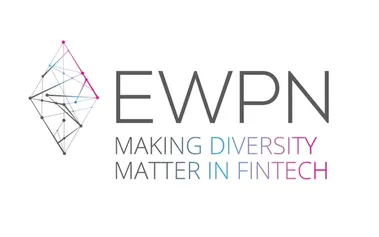The Monday morning team meeting feels like a battlefield disguised as collaboration. Your Gen X project manager rolls their eyes when the recent Gen Z hire suggests "iterating on the workflow to optimise psychological safety." Meanwhile, your most experienced team member mutters something about "participation trophies" under their breath. The Millennial team leads exchange knowing glances, caught between defending innovation and respecting experience.
Sound familiar? You're watching generational friction fracture your team's effectiveness in real time. Most leaders treat this as a personality management problem, trying to find compromises between "difficult" individuals. But here's what I've learnt from building diverse teams. Generational tensions aren't personality conflicts. They're cultural integration challenges that, when handled strategically, become your team's greatest competitive advantage.
The key isn't choosing sides or forcing everyone to work the same way. It's building inclusive cultures that leverage the unique strengths each generation brings to your organisation.
Why Generational Friction Is Actually a Culture Problem
The frustration you're experiencing isn't really about age differences. It's about conflicting workplace cultures trying to coexist without intentional integration. When 48% of Gen Z employers believe remote work is most productive while only 28% of Boomer employers agree, you're not dealing with personal preferences. You're managing fundamentally different cultural expectations about how work should happen.
Each generation developed their workplace culture during different economic and social realities. These aren't arbitrary preferences that people should "get over." They're survival strategies that proved effective during specific historical contexts, now appearing as workplace expectations that seem incompatible.
The real damage happens when we try to impose one generational culture on everyone instead of building practices that genuinely include different approaches. I've seen brilliant teams implode because leaders treated Gen Z's need for continuous feedback as "needy" rather than recognising it as a different cultural approach to professional development. Similarly, I've watched organisations lose institutional knowledge because they dismissed Boomer preferences for face-to-face communication as "outdated" rather than leveraging it for relationship building.
When generational cultures clash without resolution, the impact extends far beyond awkward meetings. Teams lose access to diverse problem-solving approaches. Innovation suffers because different generational perspectives aren't genuinely integrated into decision-making processes. Most critically, when 67% of working-age Gen Z respondents have witnessed workplace discrimination, generational misunderstanding compounds other exclusion issues, creating environments where multiple forms of difference feel unwelcome.
The Cultural DNA Each Generation Brings
Understanding generational expectations as legitimate cultural contributions changes everything about how you approach team integration. Instead of accommodating difficult preferences, you're leveraging diverse strengths.
Baby Boomers and the Culture of Earned Authority
Many in the baby boomer generation equate work with self-worth and long-term financial security. This isn't outdated thinking but rather wisdom developed during times when job security required proving yourself through dedication and expertise. Baby boomers can be motivated by milestones like promotions and prestigious job titles because they understand that recognition validates years of accumulated knowledge.
Their cultural contribution to your team includes deep institutional knowledge, long-term strategic thinking, and mentorship wisdom that prevents expensive repeated mistakes. They provide stability during uncertainty and historical context that helps teams avoid reinventing solutions to previously solved problems.
Generation X and the Culture of Pragmatic Independence
Gen X developed their workplace culture during corporate scandals and downsizing, creating healthy scepticism of authority and preference for organisations with fewer bureaucratic rules. They're not anti-leadership but rather pro-efficiency. Gen X employees highly value work-life balance, expressing cultural wisdom about sustainable performance rather than lack of commitment.
Their cultural contribution includes efficient problem-solving, reduced bureaucracy, and results-focused approaches that bridge institutional knowledge with innovative thinking. They excel at translating between different generational perspectives whilst maintaining practical focus on outcomes.
Millennials and the Culture of Purposeful Collaboration
Millennials value work-life balance, flexibility, and social responsibility because they entered the workforce during economic uncertainty that required adaptable, strategic approaches to career building. They place high value on meaningful work and career development opportunities because they understand that continuous learning provides security in rapidly changing markets.
Their cultural contribution centres on systems thinking, collaborative approaches, and continuous improvement mindsets that strengthen team cohesion. They drive process optimisation and stakeholder awareness that improves long-term organisational effectiveness.
Generation Z and the Culture of Authentic Inclusion
Gen Z's deep commitment to social justice and expectation that employers share their values reflects cultural wisdom developed during times of visible social upheaval and global connectivity. When only 6% say their primary career goal is reaching leadership positions, they're not lacking ambition. They're redefining success to include psychological wellbeing and authentic contribution.
Their cultural contribution includes inclusive practices, mental health awareness, and authentic leadership approaches that elevate psychological safety across teams. They challenge bias, drive innovation through diverse thinking, and bring global perspectives that strengthen decision-making.
Building an Inclusive Culture That Leverages All Generations
The most effective teams I've built don't try to homogenise generational differences. They create cultural norms that integrate rather than accommodate different approaches, treating generational diversity as competitive advantage rather than management challenge.
Move beyond thinking about "accommodating" different generational preferences. Instead, create teams that bring together different educational backgrounds, cultural perspectives, problem-solving approaches, and communication styles as strategic design choices. When Gen Z thrives with clear expectations and freedom to meet them in ways that suit their working style, apply this principle universally rather than treating it as special accommodation.
Traditional mentorship assumes knowledge flows from senior to junior team members. Reverse mentoring pairs younger mentors with older mentees, legitimising the reality that different generations have different expertise areas. When you pair a Gen Z employee with a seasoned colleague, you create learning dynamics that benefit both parties and strengthen overall team capability.
Rather than forcing everyone to adapt to one communication style, design systems that leverage generational preferences. Baby Boomers and Generation X may prefer face-to-face interactions while Millennials and Generation Z are comfortable with digital communication. Use this as strength rather than treating it as problem to solve.
Create multiple feedback channels that serve different generational needs simultaneously. Gen Z expects consistent coaching rather than waiting for annual reviews, whilst baby boomers tend to be comfortable with minimal feedback unless problems arise. Design performance systems that provide continuous touchpoints for those who need them whilst avoiding overwhelming those who prefer less frequent formal check-ins.
Implementing Generational Culture Integration
Building teams where generational diversity strengthens culture requires intentional design and ongoing attention. The most successful implementations I've seen treat this as organisational development rather than conflict resolution.
Start with cultural assessment that identifies current team dynamics around generational difference. Where do different generational strengths complement each other? Where are potential collaboration points being missed? What implicit biases might be limiting team effectiveness?
Train managers to recognise and leverage generational cultural contributions rather than just managing around them. Design projects that intentionally leverage cross-generational perspectives. Create decision-making processes that include different generational approaches to problem-solving.
Measure cultural health through psychological safety across generational lines. Track whether all generations feel heard and valued in team decisions. Research consistently shows diverse teams outperform homogeneous ones, and this impact extends to generational diversity when it's managed strategically rather than just tolerated.
From Generational Divide to Cultural Advantage
The friction you're experiencing in those Monday morning meetings isn't a sign that your team is broken. It's evidence that you have access to diverse cultural approaches that, when integrated effectively, create more innovative and resilient teams than any single generational culture could produce alone.
Within the next two decades, Gen Z workers will be entering management and leadership positions. Embracing their thinking and encouraging them to make meaningful contributions now builds confidence for future leadership whilst capturing their insights when they're most valuable to your current challenges.
The generational integration work you do today becomes practice for broader inclusion challenges. Teams that master cultural integration across generational lines develop skills that transfer to other forms of diversity, creating organisations where difference consistently drives innovation rather than division.
Your Monday morning meetings can become showcases for how diverse perspectives strengthen decision-making rather than battlegrounds where different approaches compete for dominance. The choice is yours to start building the inclusive culture that transforms difference into competitive advantage.




